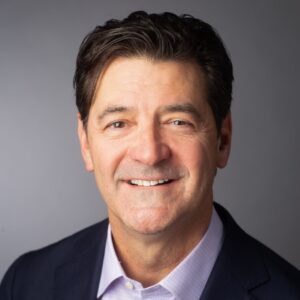Tom Farrey is director of the Aspen Institute Sports & Society program and the author of “Game On: The All-American Race to Make Champions of Our Children.”
As Americans, we tend to think excellence can be manufactured—that greatness can be created out of any piece of human clay. The Constitution states that all men are created equal, and thus, we like to think, maybe, so are elite athletes.
That explains why we have soccer academies for toddlers as young as 18 months, as Los Angeles Times columnist Chris Erskine wrote about the other day. Seriously, I’m surprised entrepreneurs haven’t yet figured out how to sell in-utero sport training — it’s easy money.
Just don’t try out that idea on elite athletes. Dara Torres joins me in New York on Sept. 3 for a moderated conversation with Sports Illustrated senior writer David Epstein, author of the New York Times bestseller, “The Sports Gene: Inside the Science of Extraordinary Athletic Performance.” The event is part of The Aspen Institute Sports and Society program’s Project Play, a two-year thought exercise addressing the barriers that limit children’s access to sports activities that promote healthy lifestyles.
In prep for my talk, I caught up recently with Torres, who won 12 Olympic medals between 1984 and 2008, when she was twice the age of some US teammates — whose abs looked soft compared to hers.
“For me, it’s always started with good genetics,” Torres said. “I’m not going to say it was all hard work because at the beginning it wasn’t. Growing up, I didn’t swim in the summers until I was in double-digits age-wise. Then, I didn’t even start double workouts until I was a teenager. I was one of those athletes who didn’t overdue it, definitely.
“Swimming just came easy to me.”
Publicly, athletes often attribute their success to effort above all else. It’s what sells on Madison Avenue. No one wants to hear the playing field is not level — it muddies the message, certainly the one parents like me constantly try to convince our children of, that life is what you make of it. But in the rarified arenas of sport, of competition through physical expression, I know this isn’t true. I’ve looked up and shaken hands with Shaquille O’Neal, mine swallowed by his. And many innate traits are not apparent to the eye.
“I was always able to visually see something done and mimic it to the T,” Torres said. “So I picked up things really quick. My strength coach, he works with some top athletes and he says that [NHL all-star] Sidney Crosby and I just pick up [new movements] so quickly. I don’t know why, I just am like that. The other thing is, I always was able to recover quickly. If I had an injury, I came back faster than anyone. If I was exhausted, I’d come back the next day no problem.”
Her perspective bears relevance to the topic of the Project Play roundtable to be held on Wednesday morning, where more than 20 coaching leaders will gather at the US Open to consider the prospects of anchoring the US sports system in the principles of age-appropriate play. If it’s true that nature trumps nurture as the true separator of Olympians and near Olympians, then can we dispense with the idea that the path to greatness is a race to 10,000 hours of deliberate practice, and let parents relax a little? Can stakeholders create a model that promotes thoughtful development over careless competition? One that’s open to all children, not just those with the family resources to afford the youth sports arms race?
To inform the discussion, I asked Mike Sagas of the University of Florida’s Sport Policy & Research Collaborative to aggregate the best research on key questions related to athletic development of children to find out if there’s evidence to support popularized notions such as the 10,000 hour “rule” (there isn’t) and early specialization in sports. You can read the report here. Epstein addressed some of these topics in his terrific book as well, diving deep into the science while also unearthing anecdotal stories that challenge conventional wisdom.
My new favorite is one that Torres shared with me and which I was unaware of. After four years of swimming for the University of Florida, she tried out for the volleyball team. Hadn’t played since high school. And the coach still offered her a scholarship. Torres was that freakishly good of an athlete.
But the most instructive story might be the one of how she’s raising her daughter, Tessa.
“She does dance one day a week, does swimming two days a week, and then the seasonal stuff like lacrosse or tennis, “ she said. “She can decide what she wants to do but I don’t want her just swimming five days a week. I mean, she’s seven years old.”
Tom Farrey’s long-form work with ESPN has won Emmy and Murrow awards. He can be followed @tomfarrey and the Aspen Institute Sports & Society program @AspenInstSports. More information about the moderated talk with Epstein and Torres talk can be found here.

